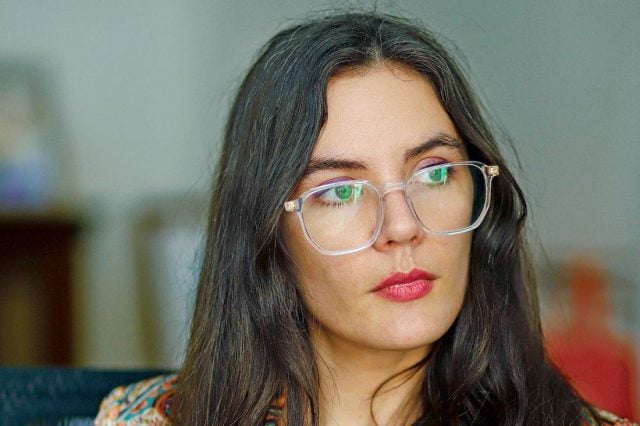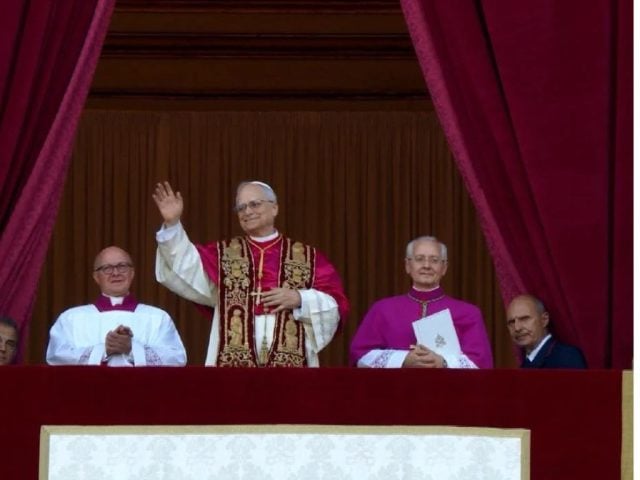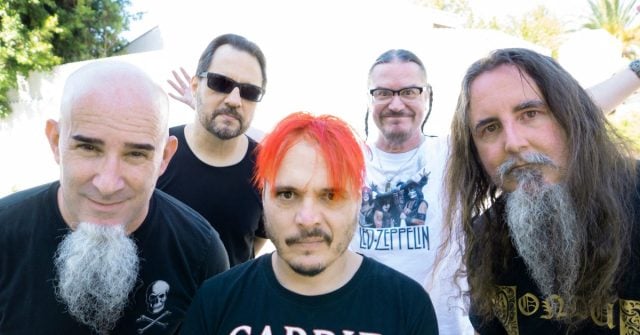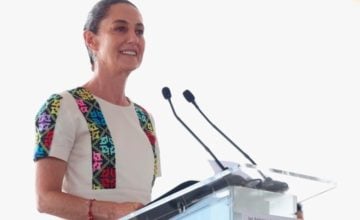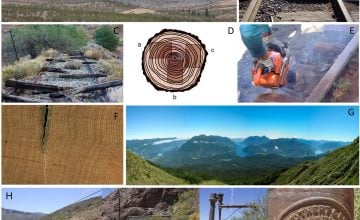– Confronting power, the top of the pyramid, and to reach this place in a vertiginous way by democratic means is part of the history of President Gabriel Boric, the youngest president in the world, but it is also part of your history as a student leader and as a deputy. Now, you must come face to face with corporate power. This corporate power that, through its ‘friends’ in the sphere of the media, tries to put the political program, the government’s transformative agenda, in check, everyday. How to deal with this power?
To talk about power is a bit strong. There are different kinds of powers, we have been going through a trajectory of social mobilization, of social leadership, to later enter the sphere of the legislative field and today in the Executive Power that, although it has important tools, it also has its limitations that one complements with the necessary social and political support in other instances, in other institutions, especially when we want to promote an issue that is so heartfelt in our country, such as the pension reform.
For the last four decades, the pension reform has been in the hands exclusively of private fund administrators (AFPs) with the logic of ‘individual capitalization’. Therefore, this logic, also allowed the administrators of the private fund to concentrate economic power by managing the contributions of all the workers in our country, in what is known as a pension fund. But for us, the important thing is to be able to advance in a model that allows us to reach the central objective: that is to increase pensions now, in the present, of the men and women who are pensioners and also of the future.
That is why we have pushed for a new design that is not easy, obviously, because building a proposal of this magnitude, which is preceded by a broad social dialogue such as the pension reform, is not easy, but above all things, we know that it has not been to the liking of the AFPs, who have made many statements against it.
– How do you deal with this super consolidated corporate power when they, at the same time, have the Media Power as an important ally, where they install their own agenda?
We have also deployed a communications plan precisely to be able to inform citizens, because we live in a society where, unfortunately, misinformation has taken more power than information and that does not happen only through the statements of a parliamentarian, or some other authority , it is also very present in social networks, it is very present in the debate in general.
Therefore, what we have done with the pension reform is a lot of teamwork between technicians and experts in pension matters, complemented with our team from the General Secretariat of Government, precisely to see how we present this reform to the public, how we communicate it. We have had coverage in all the morning programs, on the news, on the radio, in the digital press as well, and we will continue to do so because we need citizens to be informed firsthand about what the pension reform is all about, and we are going to explain to them, as well. what it contain and what it does not contain, because things have also been said that are not true regarding the 6%.
How do we deal with it? With a lot of communication deployment through different types of media, but also on the ‘ground’ (the street) and for that, we are preparing a deployment of ministers, undersecretaries, in addition to our Seremis, presidential delegates in the regions, to go and speak directly with people without media, no one to mediate the conversation, but directly and there, in person, to answer questions, because we see that there is a lot of interest from the citizens, so we want to take charge of that interest and respond to Chileans directly.
– Minister, now that we are on the subject of communications, you mentioned the issue of misinformation. How is the government going to deal with this wave of fake news that we already saw in the framework of the constituent process and that now, we are also seeing a new wave of fake news on the issue of pensions on social networks? What is the role the government wants to assume so as to combat disinformation and fake news?
Yes, we have seen this with special concern because, since when I was part of the student’s movement up to now, I have constantly seen how, through social networks and the traditional media, falsehoods or misinformation are ‘installed’. Information taken out of context or not very precise is ‘published’ and that has been an issue, a problem in our country.
But today, it has increased and we looked at what happened with Brexit as something distant – for example – or what happened with Donald Trump’s campaign in the United States , like (Jair) Bolsonaro in Brazil, which is still very present. The problems of disinformation in contexts of electoral campaigns in particular. Now, it turns out that we also have to experience it ourselves and it is a permanent siege.
It is common sense to say that information is power, but the problem now is that misinformation is being more powerful than information. Misinformation is more powerful because it spreads faster, because it is more impregnated in the belief structure, in people’s common sense, even if somebody tells you that this is not true, it is already ‘installed’.
That is when we have to take action on the matter because it is beginning to be a threat to democracy and this is a concern that we are having in this government, particularly in this Ministry where we have had to address this matter in a more responsible manner, but also at the international level, for which we are preparing an agenda, but not only with the international agenda, we have also been – for example – pushing the Law for the protection of communication workers, which is in the Chamber of Deputies, precisely to protect the legal principle behind the work carried out by journalists, photographers, cameramen, in the streets. When this work is attacked, the freedom of the press and the freedom of expression and the right to information are undermined.
We have a table that is advancing in parallel, led by the University of Chile, where information is also being collected on how to address the media ecosystem and how we, as a society, take responsibility because of the importance of the media and their diversity, but also, we have met with different organisms to talk about this problem.
We had a meeting some time ago, before the plebiscite, with all these agencies and organizations that do fake checks, that check information. We have had an important experience in this matter that can be strengthened.
We have joined forces with the British embassy, which also has experience and there is interest in collaboration. We already have certain lines of work and action to address this phenomenon; and now, recently, on the international level, I was invited by the OECD to the world forum that is going to take place next week in Luxembourg, where all the countries that are members of the OECD will be present and one of the central issues, at the heart of the strengthening of democracy, is the problem of disinformation.
The phenomenon of disinformation is associated with a problem for democracies in the world, it is not a concern only in Chile, it is worldwide and it must be seen from a global perspective. It is not enough just to advance in greater understanding or instances of regulations in each of the countries, but we need to address it in more global terms because the disinformation attacks, in many cases, probably not yet in Chile but in several other cases, come from other countries and not necessarily from within, so the regional perspective is extremely important in the fight against fake news and disinformation.
– I know that there is a concern, in fact I participated in the tables and in the dialogues that have been opened with the universities to discuss the right to communication in our country, but precisely with the issue that has to do with false or fake news news or how these are spread, they say that it looks like it is planned and executed from other countries, so the real culprits pass as ‘innocent’, because those who invest in these fake news are from the same countries that are been attacked, but they execute it from ‘outside’ so that it does not appear that it was planned and payed for from inside, but despite this, the transnational platforms tolerate these actions, they even receive money so that these lies are spread even faster. If I remember correctly, in the framework of the constitutional process, a group of North American parliamentarians made a formal complaint to Facebook and made it see, how it was behaving so as to spread fake news.
Of course, that’s why I say that we must have a kind of social pact, also because here (in Chile) disinformation is being used, above all, in the context of political campaigns, advertising is paid for in digital media, on social networks, on different platforms and that has to be seriously discussed. I think that more than having the recipe of how to approach this problem, the importance of these global forums in the field, of what the OECD convenes, is super important. To be able to tell our experience in Chile, knowing the experiences of other countries and ending up participating in more than one permanent specific forum so as to come up, all together, with more advanced proposals, hopefully in the short term, but it is essential (for our democracies).
We must also differentiate the different planes of this problem, because one thing is fake news, false news that is installed with a certain degree of intentionality. I saw it recently also with the editing of a video, because in the end, fake news is not only about telling a lie, it also has to do with disseminating edited videos, images that have been edited so as to create a certain idea in the collective imagination that tells us that it is distorted and that it seeks to dent the image or figure of an authority or any other person. And there is the fake news that is a little more intentional and the other thing is that in misinformation, it can repeat itself many times because people share, replicate and retweet things that are not accurate and a wave of misinformation begins to be created not necessarily because there is a bad intention behind the people that do the ‘sharing’, but because people do not know that it is misinformationi. It is not understood how one can, as a citizen, also have the tools to combat it.
About this problem, above all, in the context of the informed vote, we developed the ‘informed vote campaign‘, a call for empowerment with certain tips, certain recipes so that people can also filter the information they receive.
Even sometimes, as one seizes false news and one creates a doubt, because when you ‘plant’ a doubt, knowing that it is false, it also creates a problem: “Could it be or not that Juanito Pérez set Juanita Pérez up?” and it immediately generates disinformation. Doubts continue to be spread about something that is not real. Those kinds of important things are debated to generate greater awareness.
First, I will go to a meeting with UNESCO, which also invited me to talk about this same issue of disinformation, fake news and how to strengthen democracy and the protection of freedom of the press and the right to information within the framework of the fight against disinformation. That meeting is going to be in Paris; and then in Luxembourg, the world forum of the OECD, where, on behalf of the Ministry of the General Secretariat of Government, I will represent Chile in the Forum
– You have to be careful with this issue. There is a group of theoreticians from the North who have been saying that these fake news do not really change people’s perception so much, that it does not really influence. I tell you this so that you pay attention to it. In the next few weeks we are going to give you a surprise Minister because we are working on a journalistic investigation that is going to be a ‘hit’, precisely in this matter that we are talking about
It is very important and it does indeed affect. It greatly affects because our society has been ‘designed’ so that people are alone with a strenuous work day, little leisure time, little time for reading, very little preparation and education in how we inform ourselves because we live bombarded by so many ‘elements’ in the communication environment, and in the social networks, Twitter, Twitch, TikTok, Facebook, Telegram. All that type of information.
– (Giovanni) Sartori says that we are no longer homosapiens, we are becoming homo videns, a being who makes himself or herself by watching videos from a distance.
How do you process the information that reaches you? you cannot discern between one thing that is true and another that is not. How is the source of information enabled? That is something that should also be encouraged and taught in the school of journalism, in the journalists who are been formed.
It is a very important task because communication today is not only the verbal language, there is also non-verbal language and the use of images. When one first transmits a piece of news, what type of music does it have? is it a suspense type of music or not? There is an entire plane of emotions that is worked on a lot, of how a certain idea is forced to penetrate in people’s mind based on the belief structures of the population according to its idiosyncrasies and there is much more to say on that subject.
The book: Don’t think of an elephant; is like the typical example of when they tell you in the oratory, not to think about something and the first thing you do is think about it, well, it develops a lot about how certain campaigns penetrate in order to instill fear or generate polarizing situations, but that fear is built based on the belief structures of societies, so it does not only have to do with the issues that are installed, but how they permeate based on «I believe that the State is bad and the private sector is good». These are belief structures that are deeply rooted according to the cultures of the countries. So the disinformation campaigns are very well elaborated so that they permeate deep down into the mind of the people, so, they are not innocuous.
They are fragmented by specific group, the message that reaches the group c2, c3 is from an urban commune of 55 to 65 years old, that is one type, versus the one that reaches the abc1 population of a commune in a northern region that has an age range between 25 and 30 years. These are the messages that often work to penetrate the population
– It is good that you describe it and that you know the subject in depth, Minister, because as you pointed out at the beginning, this creates a great damage to democracies and not only in Chile, in all the world.
It is not bad to understand the structures of belief. I am not saying that it is bad to know how to transmit messages to a certain target audience, but the problem is when it is used for what we said: to lie, to misinform, to distort, to generate hatred, to encourage campaigns of hate; because the violence that we have also has a bit of all that. The polarization that exists because of the fear of the other, because of the denial of the other and that does not arise by spontaneous generation, it is because we also have a problem with misinformation that greatly affects our democratic coexistence.
– Minister, moving on to another topic, today, you have signed a memorandum of understanding with UN Women, so that the gender perspective is present not only in governmental posts but also within the media, if you can tell us a little more about this
This is something we have been working quietly for some time with UN Women because they asked us for a meeting. They offered to help us and we said ok, let’s go because they, mainly in UN Women, have been working with different countries in collaboration agreements to help governments and the media to incorporate the gender perspective in their work. In the case of governments, in their public policies, as well as in their communication strategies, their training courses for journalists, editorial lines, etc. So the memorandum of understanding involves several things but the main thing is the support and the collaboration towards the Ministry in a joint work with us, to fulfill the commitment we have, with the President of the Republic, to be a feminist government and mainstream the issue of gender in all areas.
And what corresponds to us, in communications, is to have a language and a communication strategy with a feminist perspective which does not reproduce gender stereotypes, etc, and make it extensive in the entire government and with the media, our objective is aimed more at sealing a media agreement that is voluntary.
We already have several interested channels. Another good thing about this, is that UN Women gives tools, training, reports, all free, and also puts them (the media channels that are interested) in a better position with UN Women, because it allows them to reach UN Women directly and request other types of greater information, more input, more tools for the media who are committed to this ‘seal’ for the gender perspective, and this is super important because one of the things we talked about, is that all the time we are educating.
We forget that many people listen to us, men and women and also boys and girls. Boys and girls consume a lot through the TV that is on at home or they watch social networks, so we do not take seriously our responsibility regarding how we are educating future generations with a perspective of respect, non-discrimination, overcoming of stereotypes or overcoming symbolic violence. This is very relevant and it generates a tremendously important impact.
– Being in the media is key because this is replicated like a snowball
And it is not only how an information is titled (…) there are also other forms of micro-machismo and symbolic violence in the treatment of women versus men, when a woman, for example, is not presented by her professional title versus the man who is ‘introduced’ by his professional title, things like that. Also when they share. When disinformation is spread about women, this ends up undermining the leadership figure of women in politics or in other areas of work.
– In Mexico, for example, the issue of political violence against women is typified. I ask about this issue because of deputy Karol Cariola. Is this an issue that the government is interested in advancing in that direction?
This is very interesting. We now had a meeting with a foundation that works on these issues and that has conducted surveys on the violence that occurs, particularly on social networks, against women in politics, it is very specific. I was interviewed but they have interviewed many female leaders of different militancies and the result, the numbers of how the vast majority have been attacked is tremendously impressive.
In the case of deputy Karol Cariola, the level of violence, beyond the present anti-communism, is very directed to her, being the deputy with the national majority in her votes, with great leadership, with many democratic conditions, but the attack on social networks (…) unfortunately it comes from a political sector, which reproduced and shared extremely violent images about her, but more than to particularize it, it is something that unfortunately happens.
That is why these things must be understood and not naturalized (…) so when we talk about this agreement with UN Women, we also talk about encouraging, a little more seriously, what the different types of violence against women are and particularly, symbolic violence. In the symbolic violence there is also political violence. And before even making a news report on cases of intra-family violence or of another type, journalists must ask themselves: Does this have a gender perspective or are we re-victimizing? For these questions to have a good answer, training is very useful, so that they also self-regulate themselves in this.
– I see the government making a series of efforts to improve the lives of Chilean men and women, for example, there is the 40-hour project, there is the issue of Zero Copay, but I am going to return to the issue of communications. I think that these issues are not reaching all of society. If I’m not mistaken, there are already 168,000 beneficiaries of Zero Copay, but it’s incredible that people still don’t know about this. What are you going to do to improve this? (that the information reaches more people)
In this last stage we have been greatly strengthening communication management in several things. In political management we had a super important conclave in that direction, in the execution of government spending as well (…), and in communication management as well. With the pension reform we have been able to have a great deployment, but we have to do it with all the initiatives that we have promoted as a government, there are many and sometimes people do not know the benefits that these initiatives bring and many people do not know that the benefit that they received, if it was that the person applied for it or made use of it, is thanks to President Gabriel Boric.
Zero Copay is one of those. Zero Copay is a historic advance. This government has achieved complete free public health care and that means a tremendous relief for people’s pockets (…) It is a very large cost-opportunity saving and that does not exist in any other government, other than the government of Gabriel Boric.
– We had the Undersecretary of Healthcare Networks explain here (Citizen’s Interview), in detail, the topic of Zero Copay because, deep down, it is a direct benefit for the pockets of the people.
And mainly for more women and middle-aged youth. So it also has a gender component that is super important. Now, it is not enough that health care is free of charge, which has been a very important advance because of the cost of relief in people’s pockets, now we are very focused on strengthening the management so as to be able to increase surgical productivity, and thus, reduce something long awaited that unfortunately exists in Chile, the waiting lists.
But how do you reduce the waiting list? operating more is surgical productivity, so we already have a center with greater surgical productivity that has been installed and will continue to be done because it is a goal to meet.
– A proposal, an idea, is a specialist division that can travel to the north of Chile, or south of Chile and in each region pavilions can be installed, plus a mobile pavilion and they can go as missions to cut down the waiting list.
These are the type of things that we have to do, such as focusing, perhaps concentrating on certain specific pathologies, certain specific operations, but the Ministry of Health is working for that end. Without a doubt, we have to move forward now because the number of years that many of our compatriots wait for a minimal operation is unpresentable, and in those years everything worsens, mental health, coexistence, development, sometimes the capacity for economic autonomy, because you have ailments, etc., then, it has many other derivatives and therefore, this is a priority within the prioritization agenda established by the government.
This was reinforced in last Sunday’s conclave, the issue of shortening the waiting time on the waiting list. And we are working full on that because it doesn’t just depend on a bill and all that implies, like improving coordination with objectives, with goals. There, without a doubt, our Minister, and she is a tremendous Minister of Health, will also achieve it with her team of undersecretaries. Management and boldness.
– Minister, there is an issue that I cannot fail to address and that has to do with the reform of the pension system. I understand that now these private entities that used to collect but at the same time the collections, the account management, the payments, are no longer going to carry out all those procedures, but that there is another entity before it, that is the State, that carries out those functions and these private entities are only in charge of investing the money
Exactly, it is that way. What we have proposed is the reorganization of the industry, because the pension industry, which is the individual capitalization managed by the AFPs, is highly concentrated and it is an anomaly. It is monopolistic, in some way, because they have the capacity or the legal attribution that no one else has because only the private sector has it, for the collection, records, accounts, etc, plus the investment of funds and that generates a very large concentration of power and that also translates into all these collections of fees that are like four and, in the end, they are one but they are really several that they charge you. Its a system that generates a lot of profit and that delivers miserable pensions, so, what do we do? we eliminate the AFP as it is known and what we say is that they have to become just investors.
All the structural support would be managed by an autonomous public entity, when we speak of autonomous public entities we speak of entities that we know, as the Central Bank. The Central Bank is a public entity and is autonomous (…).
– Is there going to be any type of restriction for these private investors, in the sense that sometimes they invest the savers’ capital in highly speculative funds that, ultimately, the saver may end up losing their funds in scenarios, for example now that we are experiencing high inflation, recession, etc, where people are seeing their savings diminish. Are there going to be restrictions on where they invest? Is there going to be a policy to encourage investors to invest in the development of national industry? For example, within the country? Where do these capitals finally go?
There is probably an interesting discussion in Congress about investment strategies as well, but each investor will be able to have their private investment strategy that they will have to present because this is going to be chosen by the person (the saver). They will be able to choose whether to dispose 10% of their money in the public investor or in one of the other private investors. And within the framework of their investment strategy, what is important, is that we pass to generational funds that accompany the life trajectory of the contributors.
That is where one only commission fee will enter into play. They will not charge you a commission for the administration of the structural support, that also generates more liquid money for you but the commission fee they do charge you is on the balance, so what is the advantage of that? Our undersecretary or the Minister of Finance will explain it in more detail, but the advantage of that is, that if it is profit, both win, the contributor as well as the investor.
The incentive for returns for private investment managers is much greater, because if the fund loses, it also loses commission fees. The amount thought is 6% , which is the 6% that both private and public employers put in, (the State is also an employer) it goes to the national accounts that are structured as an insurance system, a social security system. It is not for those who have not contributed.
The pension reform also has incentives for those who contribute the most, for example, what happens with the honorary fees? The honorary fees are not obliged to put the 6% contribution, it is voluntary, but it would be convenient for them because if they put a 6% contribution, that will come to them later in their pension, it will be an additional pension from the social security. If they do not contribute, they do not have it. They only have the contribution that they declared for individual capitalization (…).
We have had four decades of this and it is so evident that ‘scratching oneself with one’s own fingernails’ does not make them (the pensions) stand on their own, I think it is important that we learn, once and for all, from a system as extreme as the one we have from the AFP, that is focused only on individual capitalization, only ‘scratching oneself with one’s own fingernails’ is not enough to deliver good pensions, so we thought: let’s maintain the logic of individual capitalization, the individual capitalization funds that workers currently have and what they are going to continue to have are properties and they are going to continue to be the property of the workers, but it is necessary to incorporate this second pillar of social security so we cover our back more, because today someone can be earning a million and a half pesos, but well, tomorrow that person earns 600 or 500 thousand and therefore, the logic of social security is going to be very convenient for that person(…) that is to say, it is always going to be more than 6%.
This is going to be convenient for the workers because of the redistributive component that it has, but they will also see it in their personal records because 6% will go to a personal record. What happens is that in our personal record instead of 6%, there will be 7% 8%, you will see more money than if you only put it in individual capitalization.
So, in the end, I think we have to understand that our country has to evolve and this is perfectly aligned with the majority of the OECD countries that understood that the extreme system of individual capitalization is not enough, nor is it just a pay-as-you-go system, but to combine the elements, the contribution of the State, individual capitalization and the contribution of employers with the logic of social security that also recognizes personal effort (could be more just).
– This provisional reform is going to take time, perhaps it is going to be one of the great works of the government of President Gabriel Boric, but we are dealing with an issue of popularity with these pollsters that one does not know whether to believe them or not (…) What are the measures to attend to this urgency in popularity in these surveys?
Every day we take responsibility for improving our work, but it is also important to communicate and recognize everything that we have achieved in eight months of government, and this is not my sin of pride, I lack self-criticism, because we have been very self-critical during all this time, but in 8 months we achieved the most historic increase in the minimum wage, in 8 months we managed to pass the law for the payment of alimony debts, the Zero Copay, the Chile Supports plan, which among other things had, for the first time, given funds for the world of Chilean artists that no one had considered important.
The Siembra por Chile plan that is directed by the Ministry of Agriculture, which has managed to rebound the agricultural sectors that were left far behind, Fogape, which is a tremendously important line for SMEs that are going to be able to considerably reduce their debts on a monthly basis, and we signed the Escazú Agreement, we enacted the Climate Change Law, which is already been implemented. The 40 hours is advancing, the tax reform is also advancing and we are going to continue advancing, as I was saying, because we are not sitting idly by, we know that we have to go for more. Citizen security is our priority agenda, because this is not from the left or the right, people are afraid, not necessarily because there is more crime, but because the crimes are more violent, so we must always be strengthening (the Citizen security policies).
It is a matter of perception, but you also have to empathize with people because what is happening is that the fear now, is not only that your wallet will be stolen, but that when your wallet is stolen they will kill you, and that is the problem we are having because of the use of weapons. So, that is why our policy and our plan is less weapons, more security and those are the plans that we have deployed. We have managed to disrupt several gangs that are organized to commit crime. In the North, we recently confronted those gangs that stole copper and the two main ones were disrupted.
The councils against organized crime are operating, but also a better coordination of the government with the police and the authorities to precisely go where it is necessary to attack. Now, we must continue to strengthen all of this and we are working on it. The issue of citizen security is number one, cost of living number two, despite the fact that we are in a situation of greater stabilization, as a result of the CPI, we are picking up, little by little, but still, a plan of economic measures is being considered to confront the sectors that are having the hardest time in this context.
You have to see all of this about the surveys or polls with perspective. They are tools that one looks at, observing, but Carolina Tohá in the conclave, participated in the first government of Michelle Bachelet and in the government of (Ricardo) Lagos, and reminded us that both had two very difficult first years (…) so I think all this about the surveys, polls, doing your job, etc., is fine, but you also have to see it from a historical perspective with a lot of responsibility.
– In the midst of a constitutional process, an unleashed inflation worldwide, with a war, with a political right that after the triumph of rejection (the constitutional process) feels more empowered and wants to push the steamroller to the end … so there are several phenomena that exist and that have to be put in context to understand
And with a minority in Parliament, but even so, we are going to do everything possible to generate understandings and advance our programmatic commitments and with the confidence of our team, which is a very good team. The pension reform is impeccable, the tax reform too, then, will come the health reform, among other things.
We hope that this government can end with a new pension system, a better distribution of wealth, a good distribution of power (decentralization), with the 40 hours approved, with an increase in the historical minimum wage and with the foundations of a national care system and the foundations of a new model of development because we have both green hydrogen and lithium, as well as the manufacturing industry that requires a significant rebound in our Chile, in the perspective of a sustainable development model, so we still have a lot to do.
The conclave was very good. We already have an official government alliance, because we have to take advantage of the diversity that we also have and in these two coalitions there is a lot of diversity but it is understood that the most important thing is to be a single government alliance and that this is expressed not only in Parliament, or by the political party presidents, but also in the regions, because there, our ruling party can also contribute a lot to bringing the work of the State, the work of the government to the territories, to the populations and do the work that the political parties are supposed to do, which is to reconnect with the people, with the organizations, not only the Executive, the Parliament, the political parties, and this is at a global level. A lot can be done if we work together, unity is strength and we have always known that.
By Bruno Sommer
